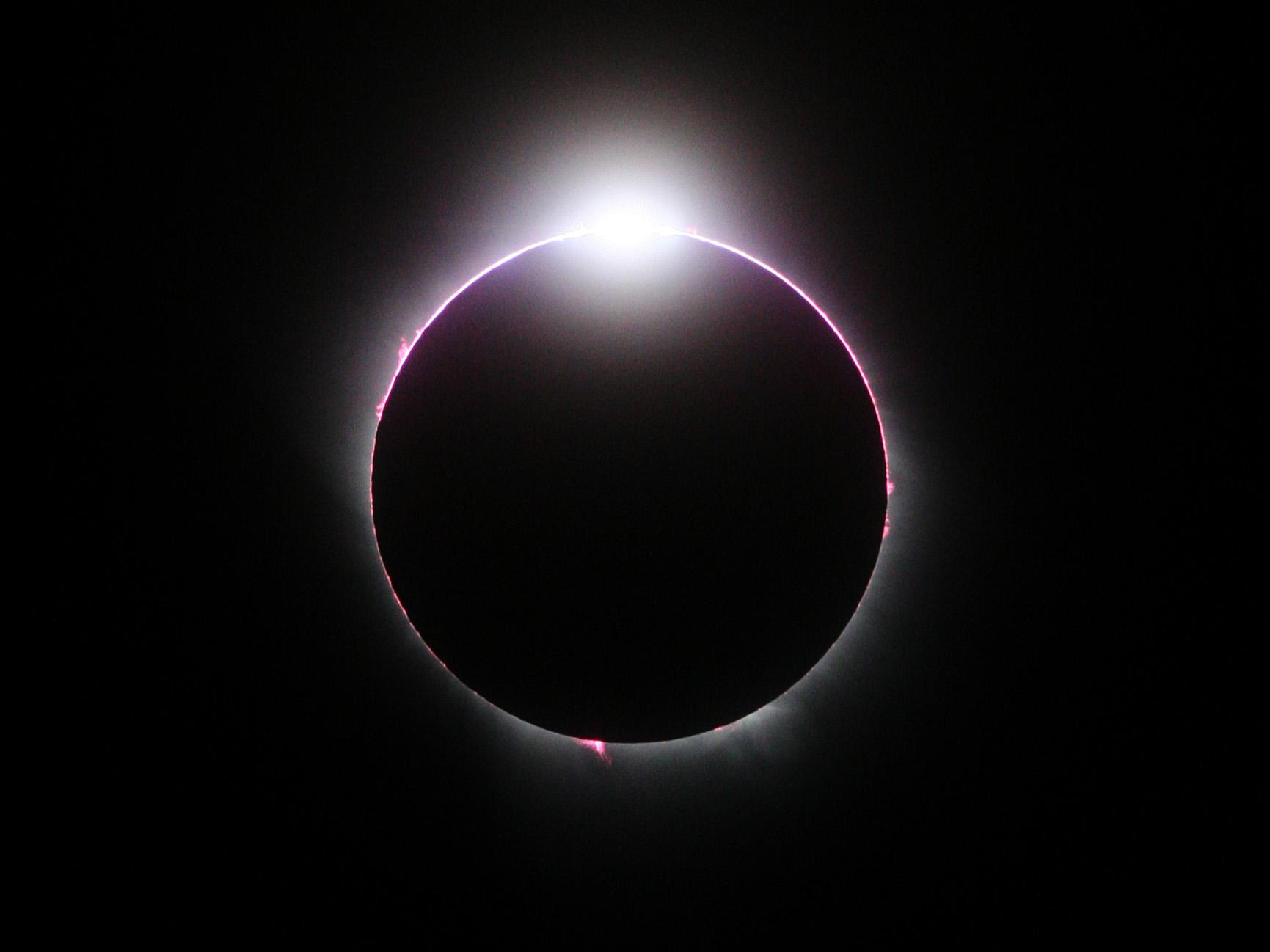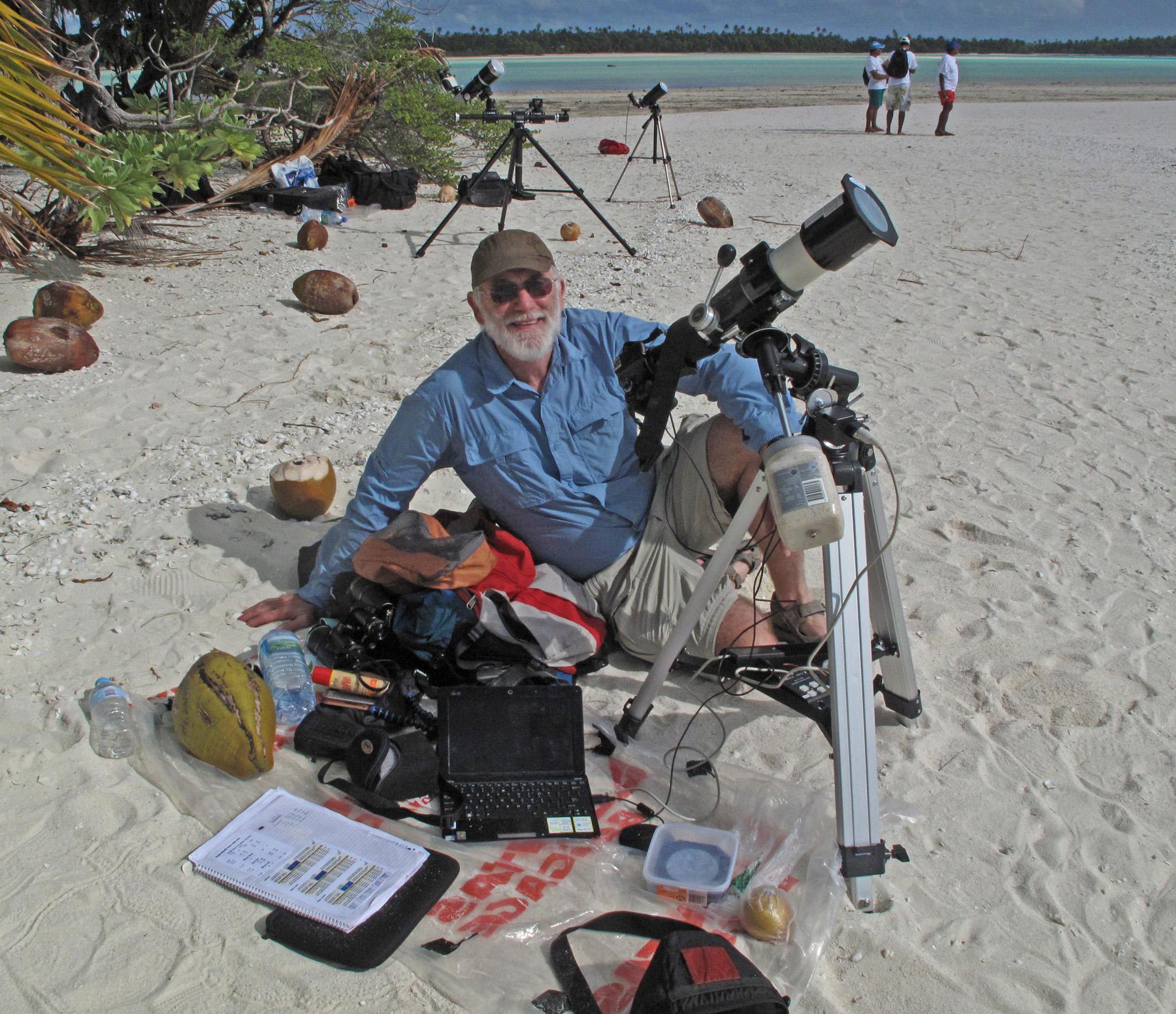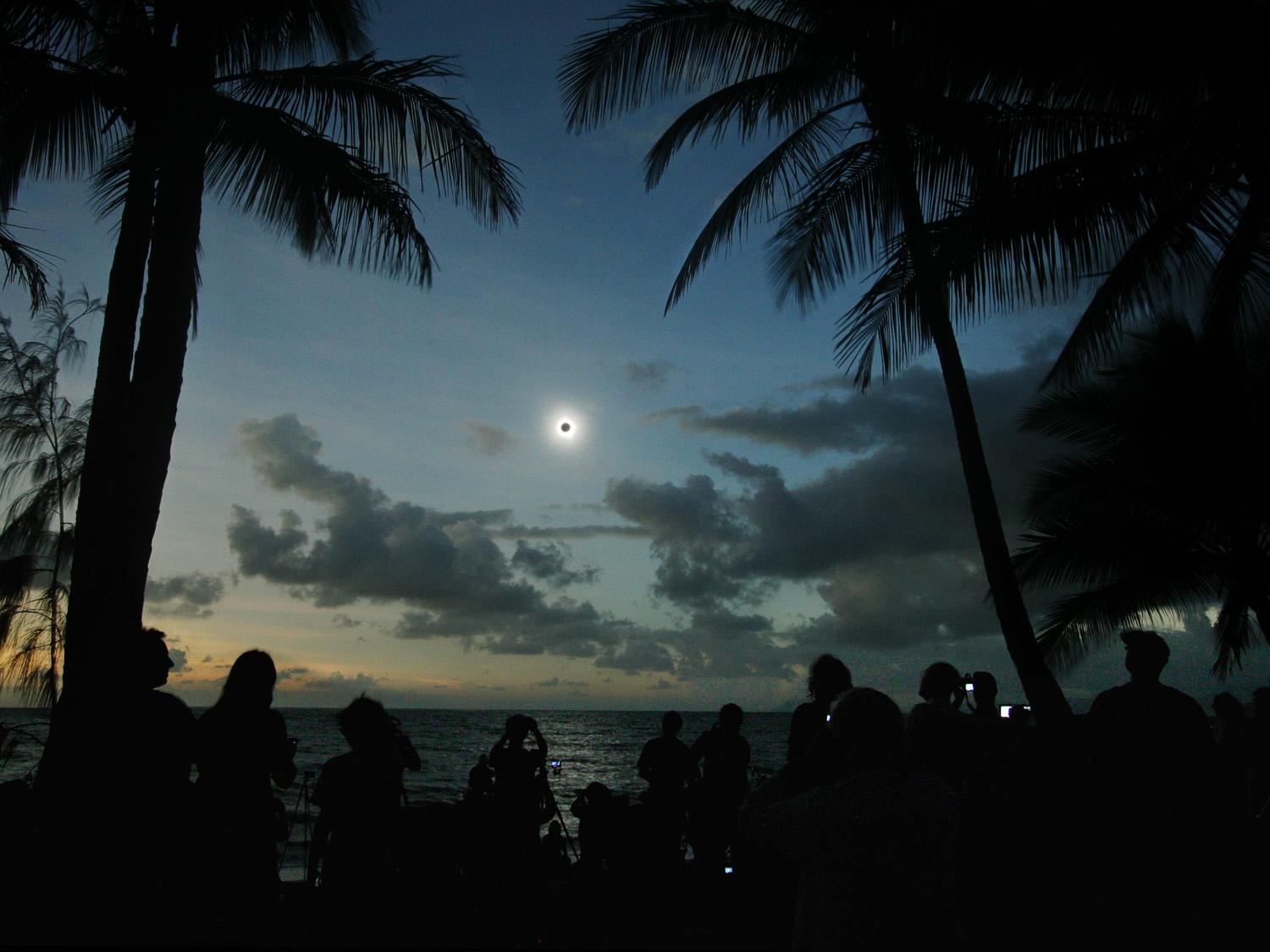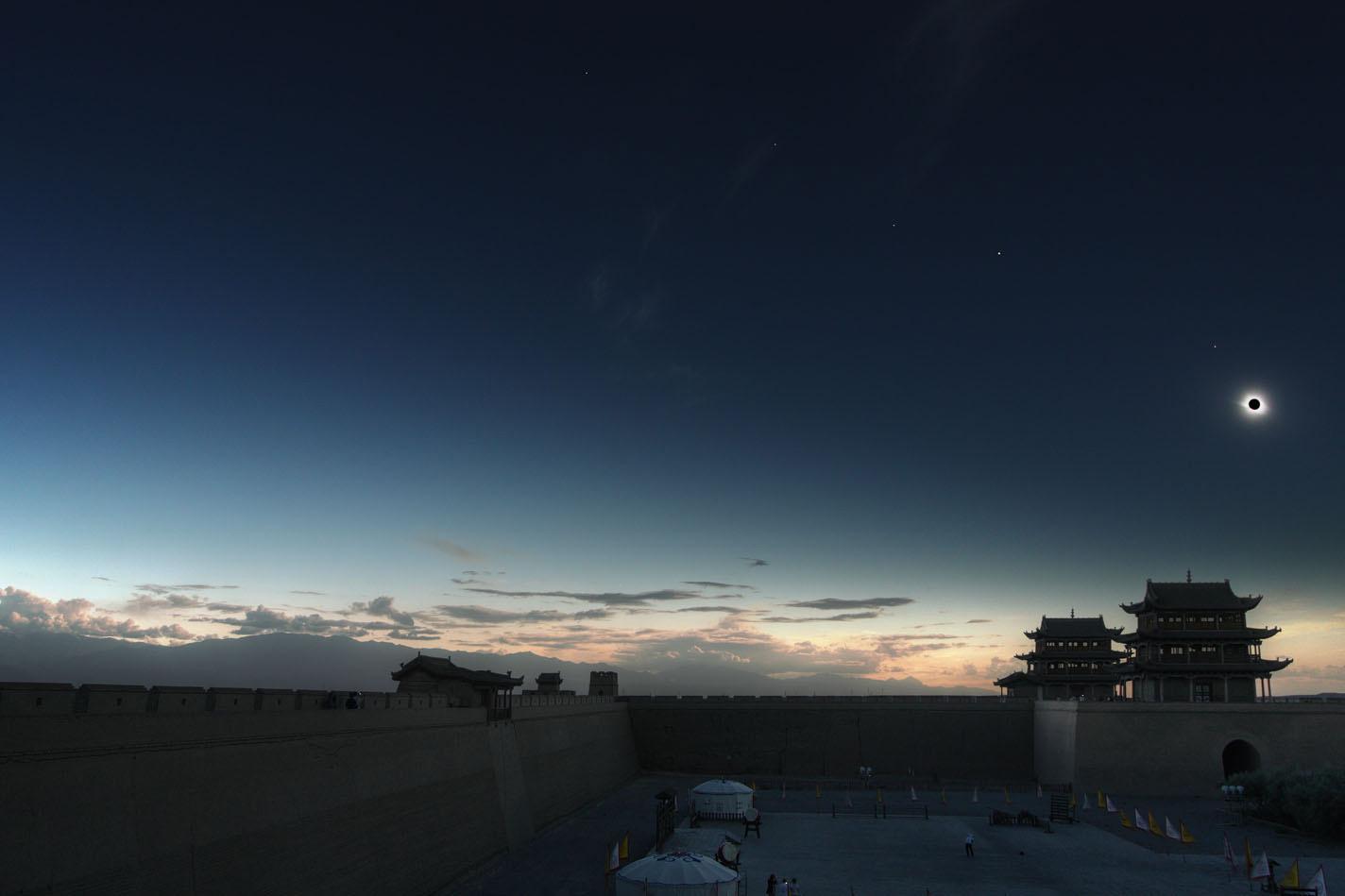This is an eclipse over the Great Wall of China in 2008.
Roughly 200 million people live within a day’s drive of next Monday's eclipse.
But eclipse chasers road-tripping to the path of totality will also be joined by those traveling much farther to stand in the shadow of the moon for just a few minutes.
Among them is Terry Cuttle, an amateur astronomer, and photographer, traveling from Brisbane, Australia, to the US to see his 16th total solar eclipse.
He’s been planning this trip for years and is aiming for eastern Idaho where the chances of clear weather are good.
“The most important thing, of course, is being able to see this eclipse,” says Cuttle. “So weather’s very important, and I need a bit of flexibility.”
Cuttle is staying just outside the path of totality and near a highway. He’s hoping that will let him avoid the worst traffic jams so he can drive east or west if the weather is cloudy where he is.

Spine-tingling spectacle
Cuttle saw his first eclipse in Australia back in 1976 and has been chasing them all over the world ever since.
“It’s the pure spectacle of it, it’s spine-tingling, it’s like nothing you’ve experienced before,” Cuttle says.
Cuttle has watched eclipses over the Great Wall of China, aboard a plane flying over Antarctica and from an island in French Polynesia.

He enjoys the challenge of planning the trips, finding locations with the best weather odds and presetting his cameras to capture different aspects of the celestial event.
His advice for first-time eclipse watchers planning to take pictures? Plan ahead.
“You can’t afford to be fiddling with your camera during the eclipse,” says Cuttle. “Just enjoy the thing.”
Cuttle plans to bring half a dozen cameras to Idaho to shoot photos and video of the eclipse on Monday.
“It’s a real challenge,” Cuttle said of photographing a phenomenon that lasts just a few minutes. “If you nail those photos, you really, really enjoy it.”
Cuttle says he also uses eclipses as an excuse to visit unusual locations.
In the West African country of Gabon, he was in one of just two groups of foreign eclipse chasers watching the event on a beach with a crowd of locals. On a French Polynesian atoll, he stayed with a local family for three days. And following an eclipse in Egypt, he backpacked across Sinai with his daughter.
After Monday’s eclipse, he and his wife are planning a five-week tour of US national parks.

Our coverage reaches millions each week, but only a small fraction of listeners contribute to sustain our program. We still need 224 more people to donate $100 or $10/monthly to unlock our $67,000 match. Will you help us get there today?
